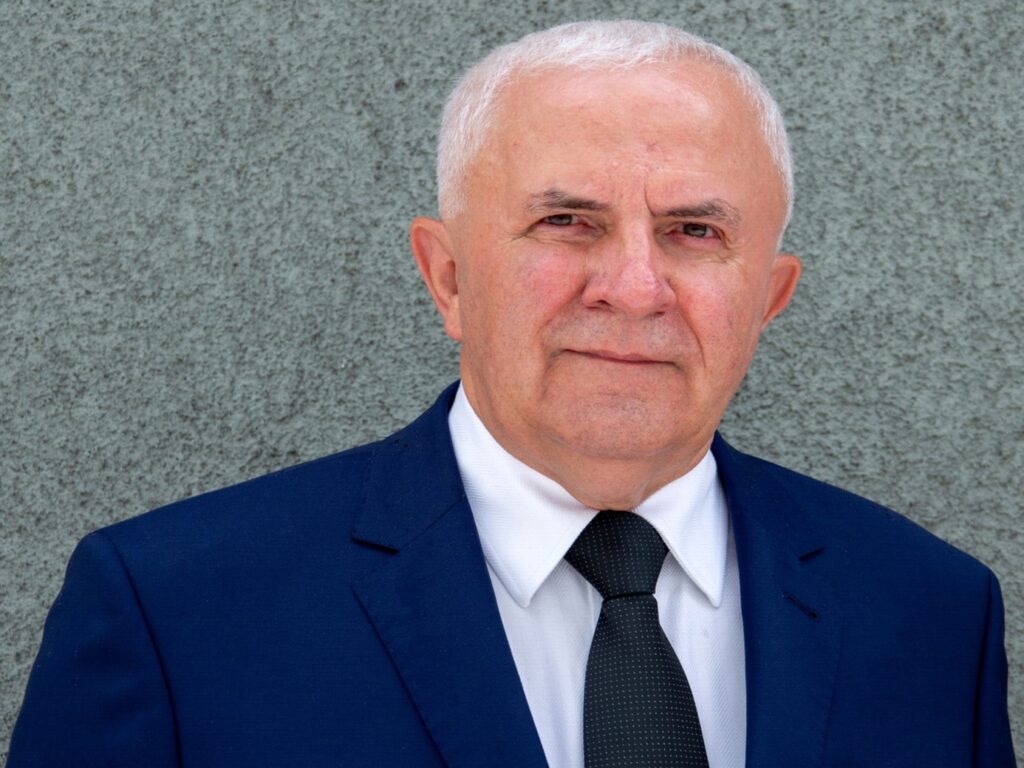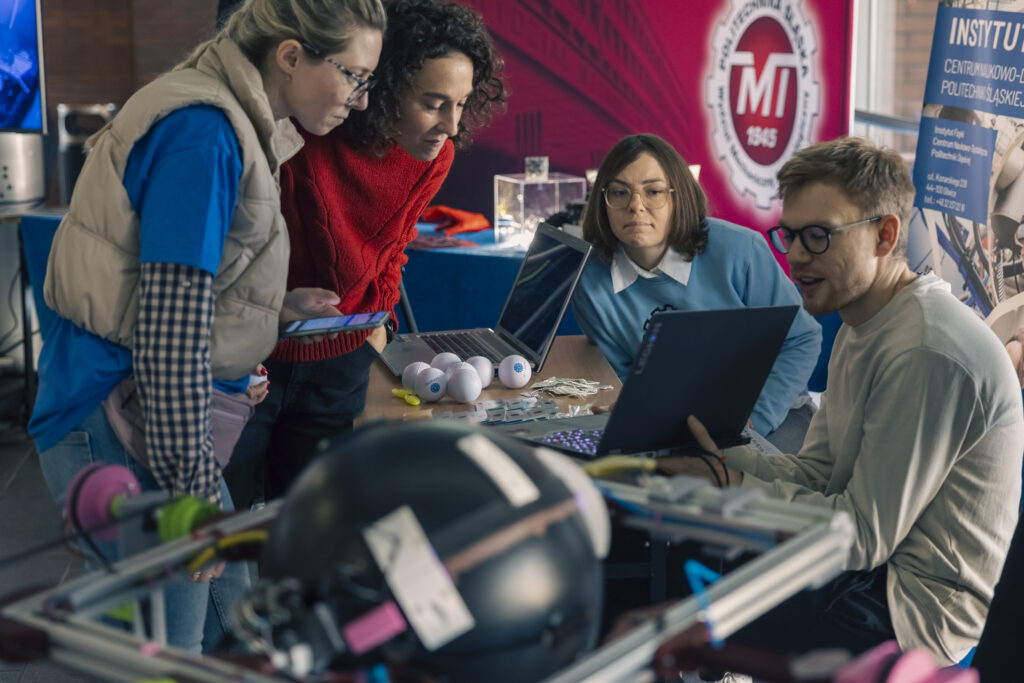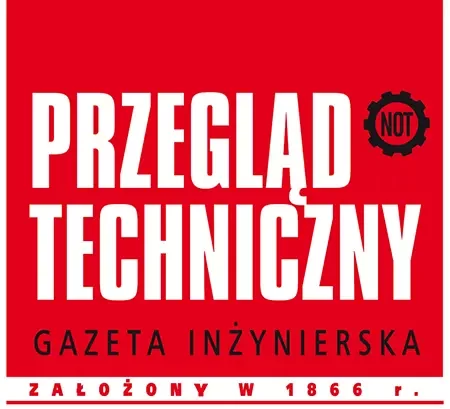In the 2023/2024 academic year, Silesian University of Technology has prepared 7,000. seats for first-year students. New to the university’s offerings were 16 integrated, flexible first degree engineering courses. This is another step on the road to adapting the educational system of the WB to both the current needs of students and the expectations of the economy.

Generation Z is entering adulthood. Today’s 20-year-olds don’t know a world without the Internet, which opens up a wide range of possibilities for them. Hence, they often have doubts about whether they really need college to build the future they dream of. Combined with the lower demographics, this makes it necessary for technical universities to work harder to encourage young people to pursue higher education. What’s more, the game is about attracting the brightest, most creative ones and preparing them best for the economy. Industry, in turn, expects engineers who not only have a solid theoretical foundation and practical skills, but also are flexible – open to rapid technological change.
– Every two years, the amount of technological information doubles. As a result, more than 65% of new technologies have a lifespan of less than 10 years. Today, in principle, it is difficult to predict where our graduates will work. It is estimated that young people who enter the labor market will change their occupation 7-8 times.
As many as two-thirds of people born after 2007 will work in occupations that do not yet exist. This raises the question of how to educate them? – wonders Prof. Ph. Eng. Wojciech Szkliniarz, Vice Rector for Research. Student Affairs and Education of the Silesian University of Technology. – First of all, interdisciplinary and fairly general. Creativity, teamwork, interpersonal communication skills, and the ability to solve problems, often in interdisciplinary, international teams – these are essential qualities in the work of a modern engineer. An additional issue is the expectations of students who want to gain knowledge at a university that is friendly and conducive to their development.
According to Prof. The glassblower’s realization of these assumptions is not helped by the fact that Polish universities – not only technical ones, by the way – have a large number of majors and narrow specializations. At the polytechnics we have almost 400 technical majors, including management alone as many as 130. Meanwhile, the world’s largest universities offer several to a dozen technical majors. A graduate with a solid general education can more easily adapt to the changing conditions and expectations of the labor market, retrain if necessary, and perform better in a managerial position. For example, the increase in the number of small companies means there is a growing need for engineers with a wider range of knowledge. Smaller businesses most often cannot afford to hire a few engineers with narrow specializations.
DIRECTION: THE FUTURE
That’s why the Silesian University of Technology has been implementing changes to its education system for several years now. New this academic year was the enrollment of 16 integrated, flexible first-degree engineering majors.
– We want to be competitive in the market by providing the best conditions for young people to acquire knowledge, skills and competencies. After all, without students, we don’t exist – explains Prof. Glazier. – We first focused on undergraduate studies. This is what the job market expects of us, as most students look for work after they graduate, leaving the earning of a master’s degree for later or giving up on it altogether. The basis of our work was the identification of critical moments related to the study.
These turned out to be: choice of university and field of study, adaptation in a new environment, difficulties associated with studying and, finally, choice of path/range/specialization of diploma. As a result, the WB – in line with global trends – has set its sights on reducing the number of majors and giving young people the opportunity to compose their studies. We also asked ourselves whether we should educate everyone or only the most capable, for example. If up to 30% of students drop out after the first semester, then there is a mistake somewhere – we are educating badly or selecting the wrong students -. notes the pro-chancellor of the WB. That’s why the credit thresholds for entry into the first year of study at PŚ have been raised. The argument for this change was also based on the opinions of the brightest students, who prefer to be educated where the level of education is higher.

To encourage these brightest high school graduates, the WBP provides students with social support in the form of varied additional special scholarships and free dormitory places for top candidates and Olympiad winners. At the same time, the programs of most majors have been improved and made more flexible, including. reduced the number of hours in the first semester (to 20 per week) – so that the new student can make a relatively smooth transition from the high school education system to the requirements of higher education. It also introduced remedial math and physics classes in the study plan, and decided to make math and physics instruction more friendly – for recent high school students. The plan included classes on communication techniques and tools. Their goal is to help those beginning their studies to function better in the group. Students have the opportunity to use the university’s base of elective classes, or modular education.
COMMON ENGINEERING CORE
The most important effect of these changes is to make studies more flexible. Currently, most engineering majors have a common engineering core in the first year. Only in the following years do more directional and specialized subjects enter. A student who came to physics, but during the first year decided that electrical engineering was more to his liking, can change his major even after the first year without any program differences.
– We are moving away from narrow specialization to an interdisciplinary approach,” he says prof. Glazier. He adds that the student should be the subject and not the object of education, while the academician is supposed to be a guide in the process.
The flexible education system allows the student to compose his engineering studies to best suit his concept of building a career. In the program, 70% are compulsory classes, largely elective, and 30% are freely elective modules. – During the first two years, the student takes general, basic and directional classes, most of which are compulsory. From the third year onward, he chooses a diploma scope consisting of defined modules and pursues it until the end of his studies. He also has the opportunity to independently compose his own diploma range consisting of modules or classes belonging to different diploma ranges. – explains Prof. Glazier.
What does modular education consist of? Classes are divided into thematic blocks. In a given period, students assimilate content that is interrelated and belongs to one module. – This makes the whole thing clearer and simpler to read and understand. Modular education is also a big relief for students in terms of reducing the number of credits and exams -See Prof. Glazier.
GENERAL ENGINEERING
This year’s changes to the education system at the Silesian University of Technology are the next stage of its modernization. An interdisciplinary general engineering major, unique in Poland, has been in operation at PŚ for three years now. It includes a program of study related to various engineering disciplines (mechanical, electrical, chemical, materials, manufacturing, aerospace, civil, environmental, biomedical engineering). It guarantees graduates a useful and marketable interdisciplinary education.
– Such a solution works well in American or Anglo-Saxon systems. We accept undecided students for this course – they want to be engineers, but they don’t quite know yet what to study and what to specialize in. With the knowledge they have gained and the help of experienced academics and career counselors, it will be easier for them to choose the best educational path – says the pro-chancellor of the PŚ. He stresses that the direction was very popular in the current academic year.
It is worth mentioning that students can choose their instructors (which mobilizes the university’s teaching staff), teach some classes themselves or propose topics for classes.
The new education policy has very strong support from students. They were widely consulted with the student community. They have gained a very positive reputation from, among others. Student Government of the Silesian University of Technology.
MORE PRACTICAL TASKS
– Employers have pointed out to us that graduates have insufficiently formed practical skills. Accordingly, we have increased the number of classes that shape such skills. Currently, we place special emphasis on laboratory classes and those conducted in a modern formula called project base learning (PBL) – says Prof. Glazier.

What do these modern methods of practical skills training consist of? It’s learning how to solve problems in practice by completing projects, usually in interdisciplinary teams, under the guidance of instructors. Students enter projects/competitions with their instructors. Annually, approx. 400 such projects. Up to 6 students and 2-3 instructors participate. In carrying out these projects, students work on various practical solutions to assigned problems, which are then credited to them in the form of learning outcomes. In doing so, they learn to work as part of a team, taking on different roles within it. There are also Student Activity Centers at the PŚ. – Young people can come at any free moment throughout the week and do specific jobs or discuss or exchange experiences under the guidance of competent teachers,” stresses Prof. Glazier. Such opportunities are already available to students in Katowice and (as of December) also in Gliwice, and will soon be joined by Zabrze.
These are global solutions. Unfortunately costly, but that the WBP has from 2019. status as a research university, it has correspondingly more resources to involve students in research.
An example of a PBL-implemented project is a glove that allows the user to feel virtual reality through the use of tactile technology. Pick up an object in the VR world and feel what texture it has. This is the result of a collaboration of 11 students from the departments of Automation, Electronics and Computer Science, Electrical Engineering and Biomedical Engineering.
The topics covered under the PBL are very broad, including. research into rocket fuels, the possibility of using industrial waste as a substitute for natural resources, or building a robot prototype.
– Our education system is an innovative study format. We are introducing it as the first technical university in Poland. It will be developed in the following years. We are encouraged by the very positive student evaluations – assures Prof. Glazier. – The fact that it is an apt path is evidenced by the fact that, despite the demographic decline and the increase in credit thresholds, in the recruitment process for the 2023/2024 academic year we achieved a 15% higher enrollment in the first year of study compared to last year.
Lidia Sosnowska




